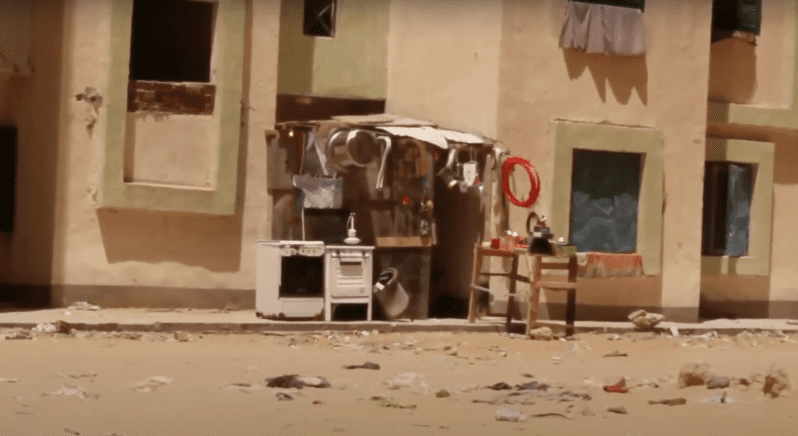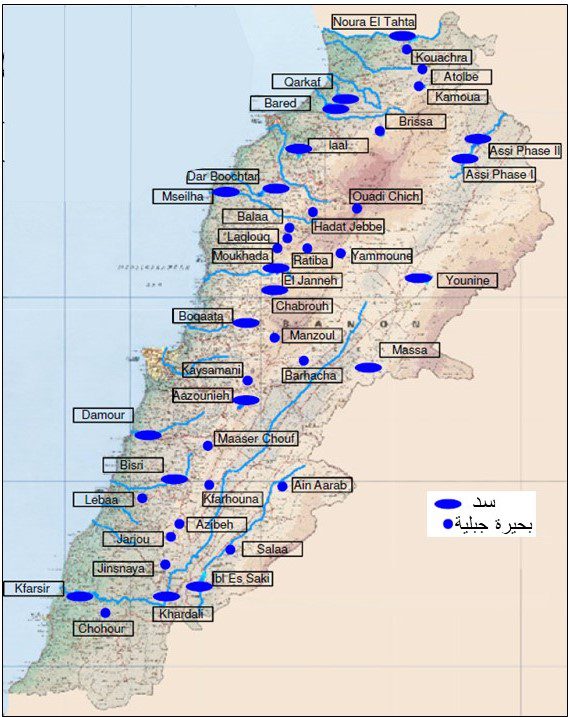The Right to Occupancy in Libya: Gaddafi’s Real Estate Legacy

After Muammar Gaddafi’s downfall, graffiti covered the buildings in Libya’s capital. Messages declaring one particular building or another to be the “sacred property” of the family or heirs of one particular person or another became commonplace. These public messages are indicative of a problem in the relationship between estate property and its owners. This problem is a difficult legacy left by the era of Gaddafi’s revolutionary ideas. What exactly is this problem? How did it arise and develop? How has Libya’s consecutive governments addressed it? And have they done so in a well-balanced and effective manner?
After coming to power in 1969, the Gaddafi regime adopted a purportedly socialist approach. According to this approach, the state sought to create a comprehensive system of social justice. To achieve this, it introduced a package of laws and measures that greatly reduced the scope of individual ownership, particularly in the area of real estate.
The regime’s socialist vision took on a more unique dimension with the announcement of the Jamahiriya and the Third International Theory, of which the Green Book was the core document. Law No. 4 of 1978 was issued to implement the phrase, “a house belongs to its resident”, and to be included within the aforementioned book. This law is the source of the chronic problem that Libya has inherited in the area of real estate ownership.
The provisions of Law No. 4 underscored the right of every citizen to own a home, and described this right as sacred. It however, restricted this right to the ownership of a single home or block of land fit for construction. The law stipulated that “Surplus” properties would revert to the state so that the latter could redistribute them to the needy, who in most cases, were the people renting them. With these stipulations, Law No. 4 translated the phrase “a house belongs to its resident” into enforceable law. Although ideology was an important impetus for issuing this law, a desire to weaken opponents and gain supporters also played an important part.
The implementation of Law No. 4 deprived tens of thousands of people of their property. Some estimate that in Tripoli alone -where a third of Libya’s population resides- the number of properties appropriated under this law equates to three quarters of the city. Adding fuel to the fire, in many cases the law’s implementation involved corrupt practices. The regime later acknowledged these acts of corruption and labeled them “deviations in the application of the revolutionary sayings”. These deviations include the appropriation of people’s sole residences, and allocating residences to people who did not meet the legal criteria.
In response to foreign and domestic circumstances, the regime subsequently amended the law; at times imposing stricter provisions, and at other times more lax provisions. For example, between 1986 and 1996, the regime underwent a partial liberalization that some have attributed to “the collapses, defeats, and breakdowns that the regime had suffered…on the international and domestic levels since 1986, and…the voices raised, especially by human rights organizations and authorities, against the violations of Libyan human rights”.[1] One of the signs of this limited liberalization was that the regime allowed former owners to utilize the courts to request the restitution of their properties, or compensating them whenever a reversion to the state did not take place in a proper manner. The People’s Court, which had jurisdiction over such cases issued rulings to restitute and compensate for properties. Before long, however, the regime got cold feet. It banned the judiciary from accepting these cases, and compelled it to reject the ones that it had already accepted. It even disallowed the implementation of rulings that had been issued but not yet carried out (Law No. 11 of 1992 and its amendments).
More importantly are the changes that occurred during the first decade of the 21st century. As part of a reform project led by Gaddafi’s son, Saif al-Islam, a committee was formed to “complete” the process of compensating for real estate property appropriated under Law No. 4. This Committee, known in short as the 2006 Committee -based on the year of its formation- was given jurisdiction to restitute these properties or provide compensation. Prior to the February 2011 Revolution, the Committee resolved 8,000 out of 25,000 compensation cases it received. Many of the original property owners, as well as the head of the Committee itself, saw the compensation as inadequate. This inadequacy prompted some original property owners to reject the decreed compensation, or to refuse to take their cases to the Committee in the first place.
As part of the same reform project, a committee was formed to review civil law. This committee ended up recommending the abolishment of Law No. 4. It argued that the law was part of a package of legislations that addressed temporal circumstances, and whose validity ended once its aims were achieved; there should therefore be a return to the established rules that govern transactions under civil law. The committee’s recommendation was a clever attempt to provide the regime with an honorable exit through which it could rid itself of Law No. 4 and similar revolutionary laws. However, the regime did not adopt the committee’s advice. It seems that it was not ready to take its reform project this far. The revisions of Law No. 4 were therefore insufficient, and original property owners were left waiting for a real change; the prospects for which were prompted by the 2011 Revolution.
Like many other Libyans, original property owners saw this revolution as a real change and a sign that their demands may be realized. These demands included the abolishment of Law No. 4, the restitution of their properties, compensation for lost earnings, as well as the damages they sustained over the decades. However, before long they discovered that fulfilling these demands would be far from easy.
Original property owners used multiple methods to achieve their objectives. Some reclaimed their properties by taking matters into their own hands, but a large number of them formed entities to represent them; the most well-known being the Association of Owners Harmed by the Tyrant’s Rule. They engaged with various parties, including the 2006 Committee, the Council of Ministers, and the General National Congress (GNC). Among other things, they called for Dar al-Ifta to issue fatwas (legal opinions or rulings issued by an Islamic scholar) that highlight the need to abrogate Law No. 4, on the basis that it contravenes Islamic law.
As a consequence of these efforts, the head of the 2006 Committee presented a bill to abrogate Law No. 4 and address its effects, and the Council of Ministers formed a committee headed by the Minister of Justice to study it. While the amended bill contained many texts that fulfilled the demands of former property owners, it neglected the previous recommendation to abrogate Law No. 4, and was instead content to merely address its effects. The 2006 Committee contended that retroactively abrogating the law would have grave consequences. It pointed out that during the decades of its application, the occupants of the properties had acquired rights that should not be undermined, especially as many had bought the properties from the people to whom the state had allocated them. Hence, the Committee ended up merely addressing the circumstances that the law had produced, rather than abrogating the law itself. The original property owners, of course, were unhappy with this outcome. Some tried to contest the constitutionality of the law before the Supreme Court, but the court rejected their appeal.
Overall, the bill served the interests of the original owners. Their continued contact with the Committee -they even attended some of its meetings- played a part in that. In contrast, the occupants of the properties had no such advantage. They were not united to defend their interests. Many of them also carried the stigma of being connected or loyal to the former regime, or having been content to live in properties that had been “extorted” in the eyes of their opponents who may have played a role in keeping them silent.
In any case, the new law never saw the light of day despite the original property owners’ desperate efforts to realize their demands. After the GNCs various committees amended the bill and transformed it into one that would restitute properties, the GNC itself did not adopt it despite deliberating over it for months. The reason, as stated by the GNC’s official spokesperson, was that legal clinics for occupants of properties had emerged, and undermining them would negatively impact civil peace. The original property owners, of course, were displeased by this outcome; they attributed it to pressure exercised on the GNC by people who had an interest in preserving Law No. 4.
The situation in Libya has developed dramatically both politically and militarily. Instead of one parliament, the country now has two -the GNC in Tripoli and the Council of Deputies in Tobruk- and the political conflict between the two camps has turned violent. As expected, interest in the legacy of Law no. 4 of 1978 has declined, and addressing it is no longer a priority. While this seems understandable, ignoring the problem will become unjustifiable as soon as the dialogue efforts bear fruit and a national unity government is established. The real estate issue is a ticking time bomb that could explode at any moment, and it is best to address it as soon as possible. As a starting point, the Constitution which is currently being drafted, could stipulate the principle of addressing the real estate legacy and the fundamentals for doing so. A law that adheres to these fundamentals could then be drafted through consultations with the concerned parties, particularly the occupants of properties. While the experiences of other countries should be considered in the drafting process, the peculiarities of the Libyan situation must be identified and taken into account. In this regard, assistance should be sought from national research centers, which have already begun researching this issue and similar ones in cooperation with eminent academic institutions. This course of action is likely to produce a just and effective remedy to the problem.
This article is an edited translation from Arabic.
__________
[1] See: Mohammed Magariaf’s, “Gaddafi’s Means of Controlling the Revolutionary Committees”, Libya Al-Mostakbal, July 27, 2008.



